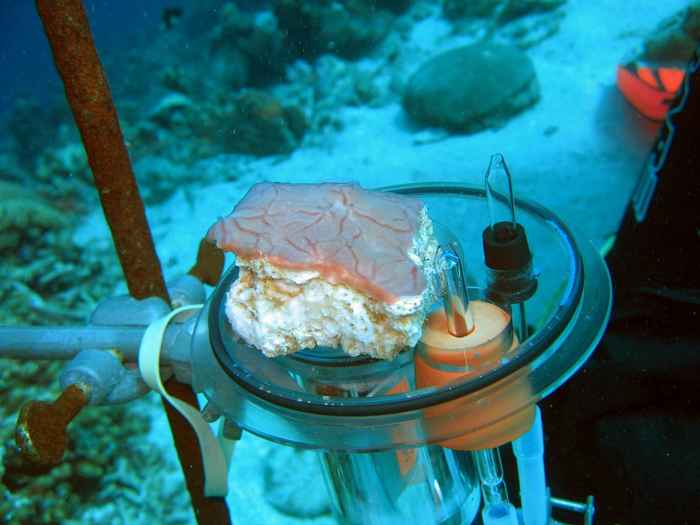Brittany Alexander
PhD student
'The CARMABI research center is conveniently located directly on the beach and it is a great place to live and work. During my stay in Curacao I am looking at sponge tissue grow under steady state conditions and during tissue regeneration, and also analysing the detritus that sponges produce as waste material. This work will provide essential information that can be used to learn more about how sponges can be cultured in aquaria under controlled conditions, which has not yet been successful.

Sponges are known to be prolific producers of many compounds that have potential applications as pharmaceuticals or in the food industry. Growing sponges under controlled environmental conditions will enable the commercial production of these compounds. My work here involves collecting a variety of species of reef sponges, mangrove sponges and cavity sponges by SCUBA diving at sites near CARMABI. During the collection dives we chisel small pieces of sponge from the reef framework which we take back with us to the wet lab. The sponges which are sampled from the reef are kept in running seawater aquariums where experiments are done to label their cells with proliferation markers.
We have also designed and constructed "sponge toilets" which are used to hang the sponges upside-down in the aquariums enabling us to collect the detritus they are producing as waste. I will be taking on students to work with me either in Curacao, Barcelona or Amsterdam, so if you are interested let me know!'